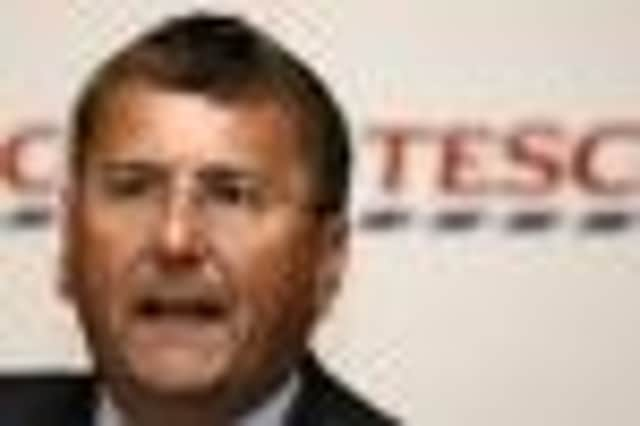IT migration costs Tesco Bank £40m as parent sees profit rise


The operation, which employs some 2,000 people at bases in Edinburgh and Glasgow, said the delay in moving from former joint venture partner Royal Bank of Scotland’s IT infrastructure to its own saw trading profit fall £40m or about 36 per cent to £168m.
The revelation came as parent group Tesco posted underlying pre-tax profits up 1.6 per cent to £3.9 billion in the year to 25 February, and gave details of a £1bn plan to revive its faltering UK supermarkets business with thousands of extra staff and store revamps.
Advertisement
Hide AdAdvertisement
Hide AdTesco Bank, whose underlying profit stripping out exceptional items actually rose 29 per cent to £203m, said: “This decision to delay the timing of the completion of migration and the launch of new products had implications for the financial performance of the bank in 2011-12.
“Specifically, the focus on the completion meant that active marketing for existing and new products, including the launch of mortgages, were deferred until 2012. It also meant a temporary extension of the period during which the bank absorbs double running costs.”
Tesco chief executive Philip Clarke said “people may be frustrated it’s taken so long”, but claimed that Tesco Bank had achieved more since buying RBS out of the joint venture three years ago than some banks had managed in decades.
The bank’s revenues in the year rose 13.6 per cent to just over £1bn, driven by a good performance in the insurance business.
A bank spokesman said that insurance, savings and loans had now all migrated to the new electronic infrastructure, with credit cards set to follow next month. He said mortgages would be launched later this year.
Tesco, whose lacklustre UK sales performance sparked its first profits warning in a generation in January, said overall UK profits fell 1 per cent to £2.5bn. International profits, by contrast, rose 17.7 per cent to £1.1bn. Like-for-like sales in the UK fell 1.6 per cent in the final quarter of the year, including a 2.3 per cent slide over Christmas.
Clarke repeated Tesco’s commitment to its loss-making US business, Fresh & Easy, despite calls from some institutional investors for it to be abandoned.
However, unveiling a 17 per cent fall in Fresh & Easy’s losses to £153m, he pushed back its previous break-even target of 2012-13 to an unspecified date.
Advertisement
Hide AdAdvertisement
Hide AdCurrently 30 of the American subsidiary’s 186 stores are profitable, and Clarke said he was reining in further expansion of the chain until the existing business was doing better.
“There is boundless opportunity in America if you get it right. But it [F&E] is a challenger brand – we are a minnow in a big sea,” Clarke added of the US situation.
As part of Tesco’s revamp of the UK business it said it would open nearly 40 per cent less space this year, with capital spending coming down from £3.8bn last year to some £3.3bn.
The group declared a final dividend of 10.13p, giving a full-year payout up 2.1 per cent at 14.76p from 14.46p the previous year.